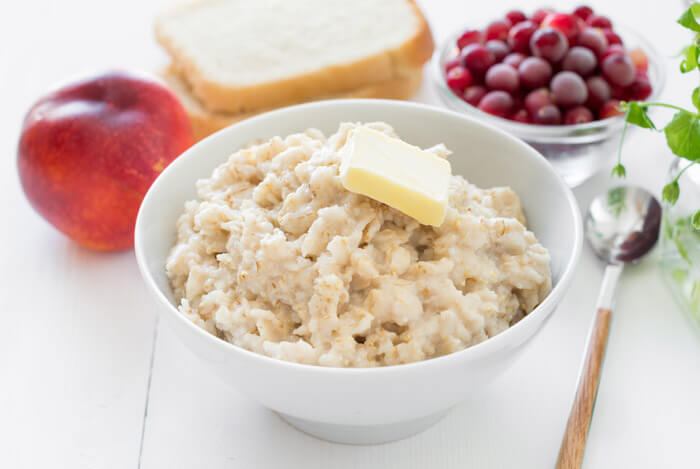For decades now, such high fat foods have been included as sparingly as possible in the diets of people seeking to improve their health. When we go to the supermarket, we look for the cut of meat with the least amount of fat. When we buy dairy, we go for the lowest of the low-fat versions we can find.
Fat has been the enemy for so long, we’ve convinced ourselves that the only way to be healthy is to eliminate it altogether from our diets. The reasoning for this may not be so concrete.
Turns out, you can enjoy your butter, dairy, and meat with healthy amounts of fat.
In the 1980s, the US and UK governments released new health guidelines that recommended people go for new low-fat products, which led to consumers shunning cheese, milk, and cream – something now being credited as partial blame for the startling obesity epidemic.
As a result of reducing fat, we increased our intake of carbohydrates, of sugars, and the now-dreaded trans fat (found in margarine).
Long vilified for its alleged role in clogging arteries and weakening the heart, butter is making a comeback. Here are 9 reasons why you should reconsider your aversion to butter.
- Butter Can Be High In Nutrients
- Saturated Fat Is Not As Bad As You May Have Been Told
Table of Contents
+Butter Can Be High In Nutrients

Pulling the butter out of the fridge and including it with your breakfast every morning could actually lead to improved health overall.
Butter contains the natural, fat-soluble vitamins A and D, and the fat-soluble vitamins E and K.
A healthy body needs these vitamins for a few reasons:
- Vitamin A is important for bone growth, reproduction, tooth development, and is an important antioxidant that may contribute to the prevention of certain cancers.
- Vitamin D is used by the body to regulate its use of calcium and phosphorous, and benefits the control of cell growth. And, as you’ve likely heard many times in your life, it helps to build strong bones.
- Vitamin E serves as an antioxidant, protecting red blood cells and fatty acids. But its early links to success in preventing cancer and heart disease have been in question for a while now and are not as set-in-stone as they once were in the medical community.
- Vitamin K is essential for blood clotting, promoting bone health, and producing proteins for the blood, bone, and kidneys.
Saturated Fat Is Not As Bad As You May Have Been Told

For nearly four decades, saturated fats have been targeted as the primary cause of our worst health woes. These fats are found in meats, dairy, and baked goods. Saturated fats are made up of straight chains of carbon, which allow the molecules to cling tightly against one another.
In the 1970s and 1980s, health gurus claimed eating red meat and butter were the causes of higher “bad” LDL (low-density lipoprotein) cholesterol, which led to heart disease and obesity. But since then, studies have failed to link saturated fat to either.
In fact, neither saturated fats nor monounsaturated fats (found in olive and canola oils) had any effect on raising the rate of heart disease.
What did have an effect?
Trans fats. These are abundant in the fried foods found at fast-food restaurants worldwide, low-fat margarine spreads, baked goods and pastries.
The myth that saturated fats lead to high levels of bad cholesterol is becoming more and more unbelievable as research continues to demonstrate the opposite.
This doesn’t mean they’re safe in any amount, but moderate amounts of saturated fat are not to be feared.
As always, your diet should be well-balanced and consistent, containing the levels of fats, proteins, and carbs appropriate for your dietary needs. An abundance of butter may not be something to include in every meal, but don’t buy into hype that you need to eliminate it completely.










